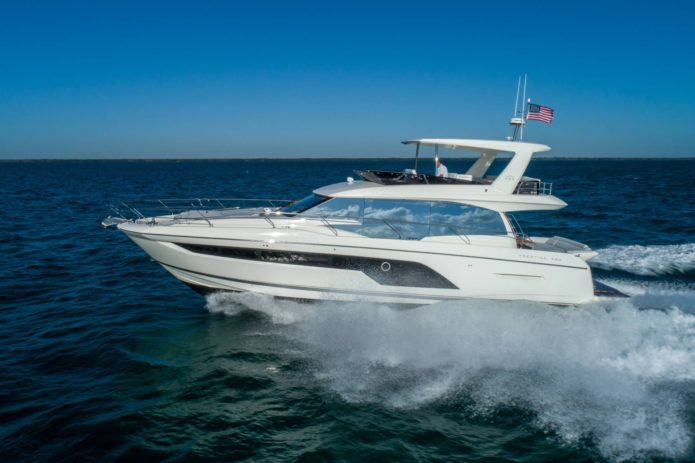From sleek speedboats to luxury yachts and personal watercraft, owning a vessel is both a lifestyle and a financial investment. But whether you’re looking to sell, insure, finance, or settle a legal matter, knowing what your watercraft is truly worth is essential. Unlike cars, boats don’t follow a predictable depreciation curve, and their value depends on a wide range of factors that only a professional watercraft appraisal can accurately assess.
Unlike general online estimators or dealer opinions, a professional appraisal provides a certified, evidence-based valuation of your vessel, reflecting its unique specifications, market conditions, and overall condition. Whether you’re managing a personal boat or overseeing a commercial fleet, understanding the true value of your assets puts you in a stronger, more informed position.
Why a Watercraft Appraisal Is Necessary
Watercraft are highly individualized, and their value is influenced by far more than age and engine hours. Materials, onboard equipment, maintenance history, navigational systems, hull type, and even regional demand all play a role. Two boats of the same make and year can vary dramatically in value depending on how they’ve been maintained and used.
In financial, legal, or transactional scenarios, an official appraisal gives you a clear, unbiased snapshot of a vessel’s worth. Whether you’re negotiating with buyers, dealing with insurers, or dividing assets in a divorce or estate settlement, this documentation protects your interests and provides clarity where it’s most needed.
Situations That Require a Watercraft Appraisal
There are many cases where a certified appraisal is either recommended or required. Among the most common:
- Buying or selling a vessel: Ensures a fair market price and supports negotiation.
- Insurance coverage: Especially for agreed value policies, a current appraisal is often required.
- Financing or refinancing: Banks typically need a documented value before approving a loan.
- Estate or divorce proceedings: A court-admissible valuation supports equitable asset division.
- Donation or tax reporting: The IRS requires a qualified appraisal when a donated vessel exceeds a certain value.
- Litigation or disputes: An independent appraisal is key when settling disagreements over value.
Even if you’re not actively involved in a transaction, periodic appraisals can help track your vessel’s depreciation or growth in value over time.
What a Watercraft Appraisal Includes
A professional watercraft appraisal involves more than a visual walkaround. It’s a comprehensive evaluation that includes:
- Hull and structural inspection
- Engine condition and performance metrics
- Electrical, plumbing, and onboard systems
- Electronics and navigation equipment
- Interior furnishings and amenities
- Maintenance records and service logs
- Market comparison with similar vessels
The final report includes a detailed summary of the vessel’s condition, high-resolution photos, comparable sales data, and a clear valuation. It may also include replacement cost estimates and depreciation analysis.
Who Should Perform the Appraisal?
Choosing the right appraiser is critical. Watercraft valuation is a specialized field, and a general appraiser or dealer may not have the depth of experience needed for accurate analysis. Instead, look for:
- Certification from recognized organizations such as the Society of Accredited Marine Surveyors (SAMS) or National Association of Marine Surveyors (NAMS)
- Proven experience with your type of vessel—be it a sailboat, motor yacht, fishing boat, or PWC
- Up-to-date market knowledge and regional expertise
- A clear, transparent appraisal methodology
- Reports that are accepted by insurance providers, lenders, and legal authorities
Qualified appraisers may conduct in-person inspections or, in some cases, remote evaluations with owner-provided documentation and video walkthroughs.
The Benefits of a Professional Watercraft Appraisal
An expert appraisal does more than just assign a number—it adds confidence to your decision-making. With a professional report, you can:
- Negotiate from a position of strength when buying or selling
- Secure appropriate insurance coverage based on real-world value
- Avoid under- or over-valuing assets in legal or financial matters
- Establish tax or donation deductions with confidence and compliance
- Track appreciation or depreciation over time to inform future planning
In short, an appraisal offers transparency in an often opaque market, helping you protect one of your most valuable recreational or commercial assets.
Final Thoughts
A watercraft is more than just a vessel—it’s a commitment of time, money, and passion. Whether you sail, cruise, fish, or race, knowing your boat’s true value ensures that your investment is respected and protected. A certified watercraft appraisal brings accuracy to an industry where pricing can be highly subjective, giving you the clarity to move forward with confidence.
Before making your next move—whether it’s a sale, purchase, insurance renewal, or legal step—make sure you have the right numbers behind you. Because on the water, as in business, precision matters.


